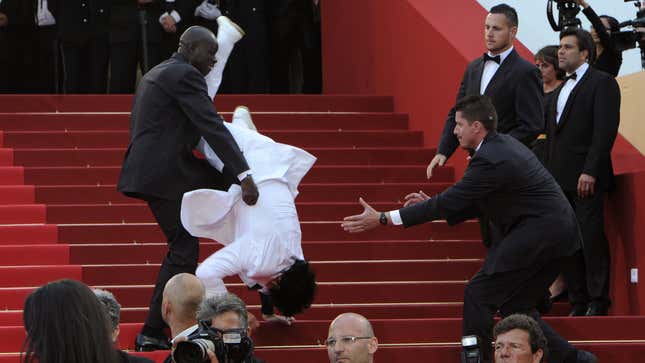
Image: ANNE-CHRISTINE POUJOULAT/AFP via Getty
In May, Jason Derulo cracked his front teeth while attempting to eat an ear of corn that was attached to a power drill—the latest in his ongoing campaign to create content and participate in “challenges” that proliferated on 2020’s star app, TikTok. In the same month, I watched as the pop star and former CAT succeeded in putting on a pair of pants by jumping into them from a great distance, taking a flying leap from some feet away and making it into the proffered Nike sweatpants, to the amazement of the sad souls conscripted into this ask. Derulo is a celebrity with enough sway and visibility that he needn’t stoop to such measures for relevancy if YouTube compilation videos like the one featuring Derulo singing his name for an hour are a suitable metric of success. But during a pandemic, when the best course of action is to stay inside and away from strangers, the work of maintaining relevancy—and capturing attention— has become much more difficult.
Being famous prior to the pandemic was relatively simple. Celebrities would do whatever it was they were famous for in the public eye, have their photos taken by paparazzi, and appear on red carpets so that the rest of us regular people could watch, discuss, and assess their comings and goings. When the spread of coronavirus forced celebrities indoors, the nature of their occupations changed dramatically. No longer capable of interacting with the public in the ways to which they’re accustomed, they turned to social media and started acting like influencers, flooding the attention market with content, most of it indistinguishable from the content produced by the TikTok-famous like Addison Rae, the D’Amelio sisters, and Madison Beer.
-

-

-

-

-

-

-

-

-

-

-

-

-

-

-

-

-

-

-

-

-

-

-

-

-

-

-

-

-

-

-

-

-

-

-

-

-

-

-

-








































